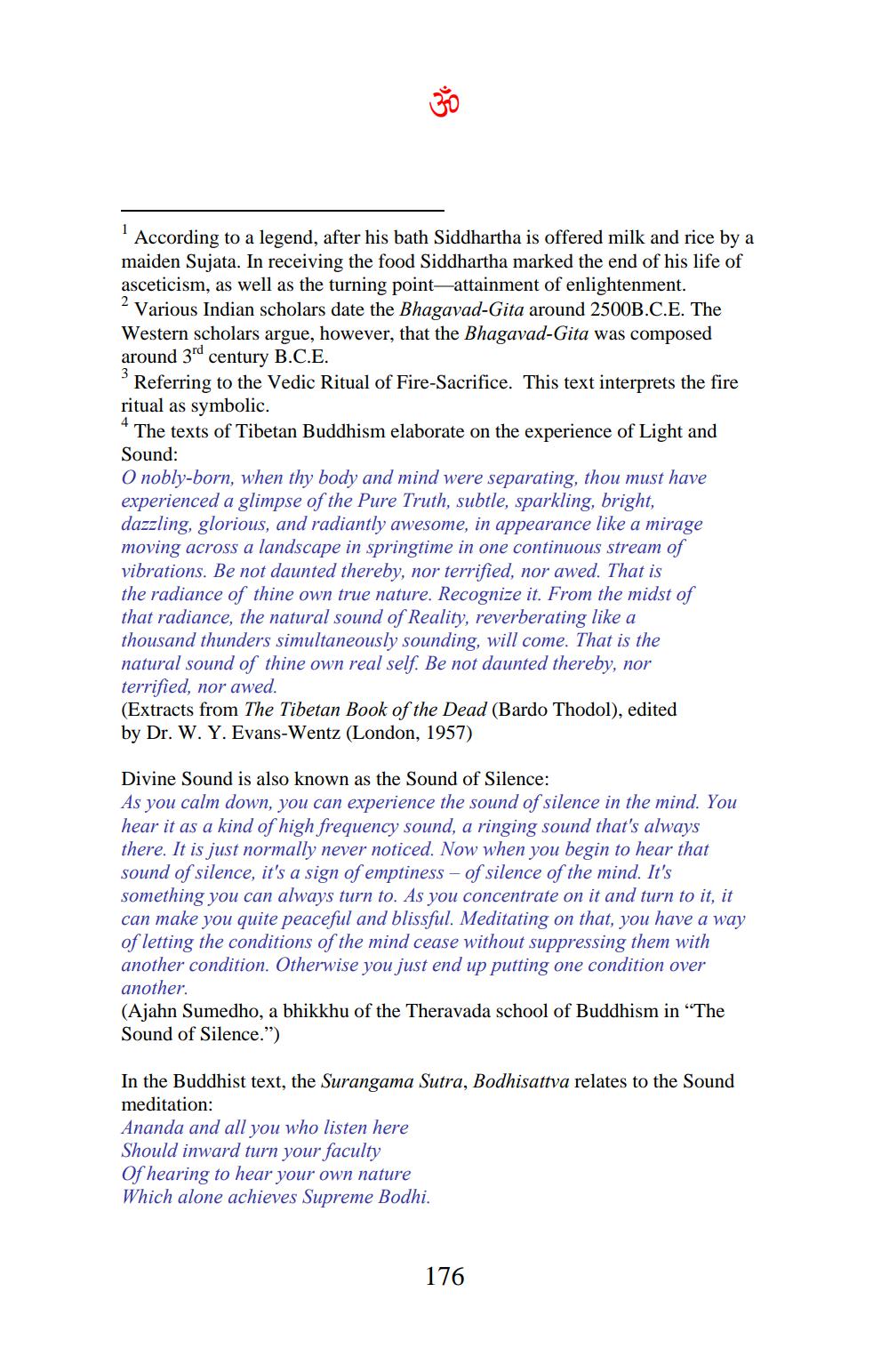________________
According to a legend, after his bath Siddhartha is offered milk and rice by a maiden Sujata. In receiving the food Siddhartha marked the end of his life of asceticism, as well as the turning point-attainment of enlightenment. 2 Various Indian scholars date the Bhagavad-Gita around 2500B.C.E. The Western scholars argue, however, that the Bhagavad-Gita was composed around 3rd century B.C.E.
Referring to the Vedic Ritual of Fire-Sacrifice. This text interprets the fire ritual as symbolic. * The texts of Tibetan Buddhism elaborate on the experience of Light and Sound: O nobly-born, when thy body and mind were separating, thou must have experienced a glimpse of the Pure Truth, subtle, sparkling, bright, dazzling, glorious, and radiantly awesome, in appearance like a mirage moving across a landscape in springtime in one continuous stream of vibrations. Be not daunted thereby, nor terrified, nor awed. That is the radiance of thine own true nature. Recognize it. From the midst of that radiance, the natural sound of Reality, reverberating like a thousand thunders simultaneously sounding, will come. That is the natural sound of thine own real self. Be not daunted thereby, nor terrified, nor awed. (Extracts from The Tibetan Book of the Dead (Bardo Thodol), edited by Dr. W. Y. Evans-Wentz (London, 1957)
Divine Sound is also known as the Sound of Silence: As you calm down, you can experience the sound of silence in the mind. You hear it as a kind of high frequency sound, a ringing sound that's always there. It is just normally never noticed. Now when you begin to hear that sound of silence, it's a sign of emptiness - of silence of the mind. It's something you can always turn to. As you concentrate on it and turn to it, it can make you quite peaceful and blissful. Meditating on that, you have a way of letting the conditions of the mind cease without suppressing them with another condition. Otherwise you just end up putting one condition over another. (Ajahn Sumedho, a bhikkhu of the Theravada school of Buddhism in “The Sound of Silence.")
In the Buddhist text, the Surangama Sutra, Bodhisattva relates to the Sound meditation: Ananda and all you who listen here Should inward turn your faculty Of hearing to hear your own nature Which alone achieves Supreme Bodhi.
176




